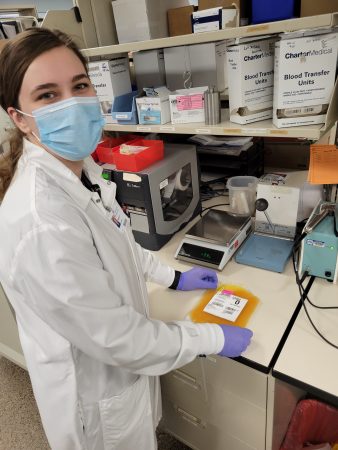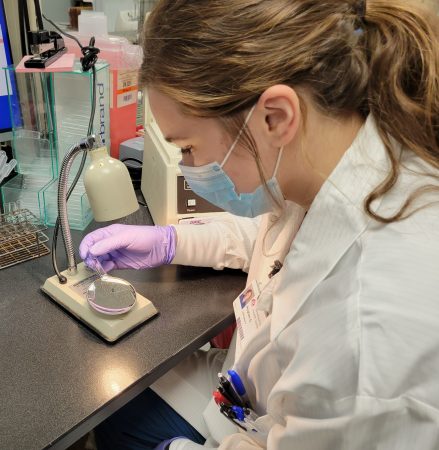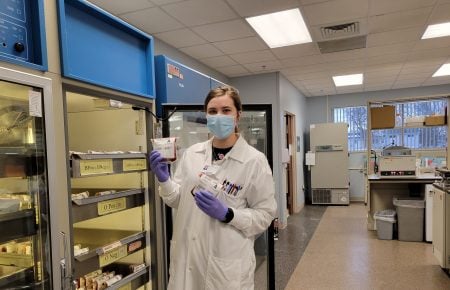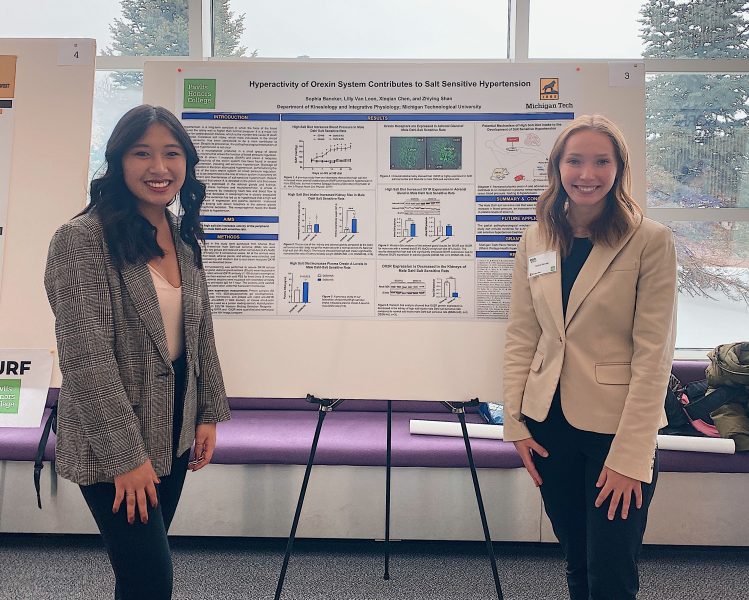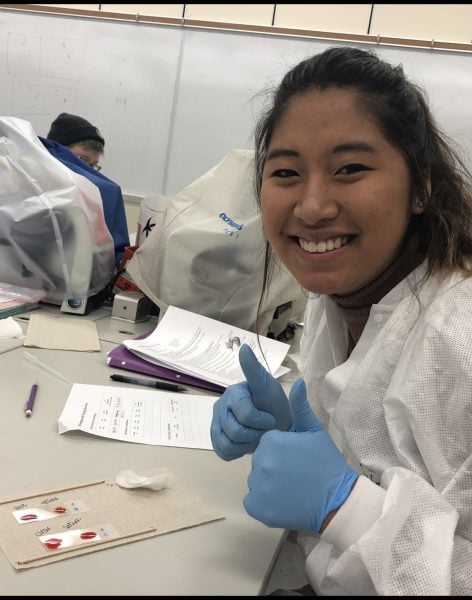Medical Technologist Peyton Gast graduated with a BS in Medical Lab Science from Michigan Tech. She works for Marshfield Clinic Health Systems in Transfusion Service. We caught up with Peyton recently.
MTU: What are you doing now?
Peyton: I work in the Transfusion Service department of the lab. This is a unique department because we are not only a testing service for patient samples, but we also provide the hospital with a variety of blood products – red blood cells, plasma, platelets, etc. When you donate blood, it comes to labs like ours, and we make sure the right units go to the right patients. Depending on the patient, finding compatible blood products can range from a very easy to a rather difficult process. This process is always a little easier when you have a large blood supply – which we do not have right now. That’s why it’s so important to get out there and donate!
How did you end up becoming a Medical Technologist?
Peyton: I knew that I wanted to work in the medical field, but I was wary of having a patient-facing career. When I came to MTU and discovered medical lab science, I loved that it was a behind-the-scenes role with a direct, significant impact on patient care. When I did my clinicals at the Marshfield Clinic, I learned that their Transfusion Service was the perfect department for me – it requires extreme attention to detail, and I get to do a lot of critical thinking and advanced manual techniques – which is the fun part! I also like that I get to take part in the stem cell processing program, and I can teach what I’ve learned to new MLS students every year.
How did your degree and course of study at Michigan Tech prepare you for success as a Medical Technologist?
Peyton: Michigan Tech provides relevant and hands-on experience which made me feel very prepared for my clinicals. I had the opportunity to work with samples regularly seen in the lab, as well as examples of more complex disease states – especially in microbiology and hematology! I apply the techniques I learned at MTU to my job every day, and I have more confidence in my career knowing that I have a well-rounded education.
What did you enjoy the most about your Michigan Tech experience?
Peyton: The best part of my education experience at MTU was the opportunity to work so closely with instructors. They were always eager to meet and discuss classroom topics so that we can all better understand the material – no matter the class size.
What advice do you have for Tech students today who wish to pursue a similar career?
Peyton: I would tell any new students interested in lab science that a degree in MLS can take you in many directions. This career can be as specific or as broad as you want it to be, so take advantage of electives and use it as an opportunity to find what you’re most interested in. I would encourage students to push this career as far as it can go – whether it’s getting a specialty in your department, going into management, teaching, or being the best generalist out there – MTU will prepare you to do it!
